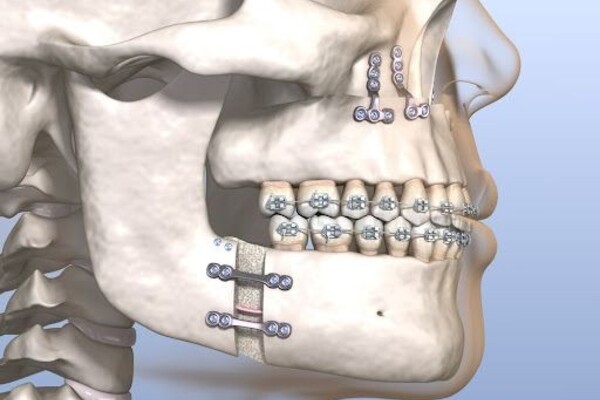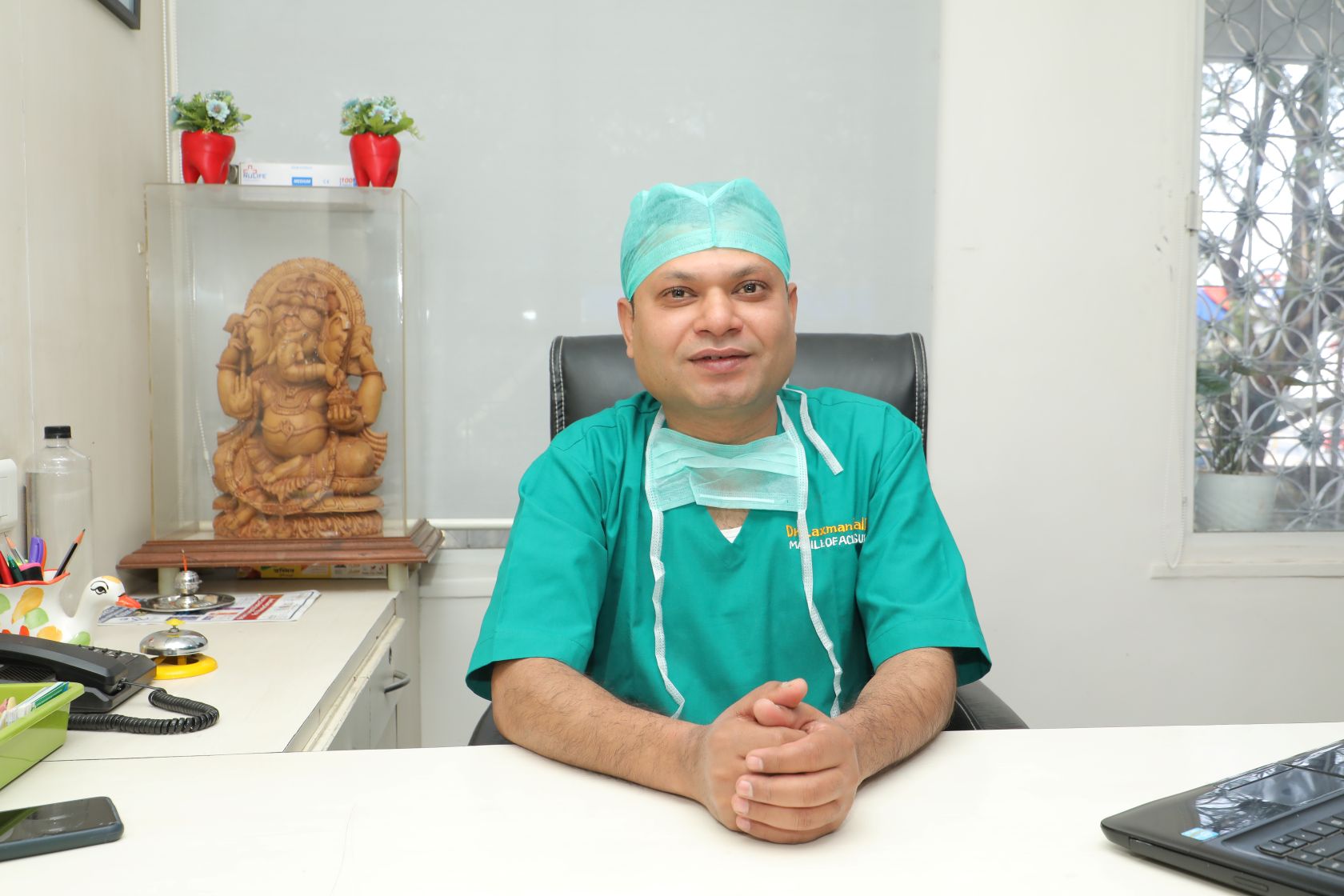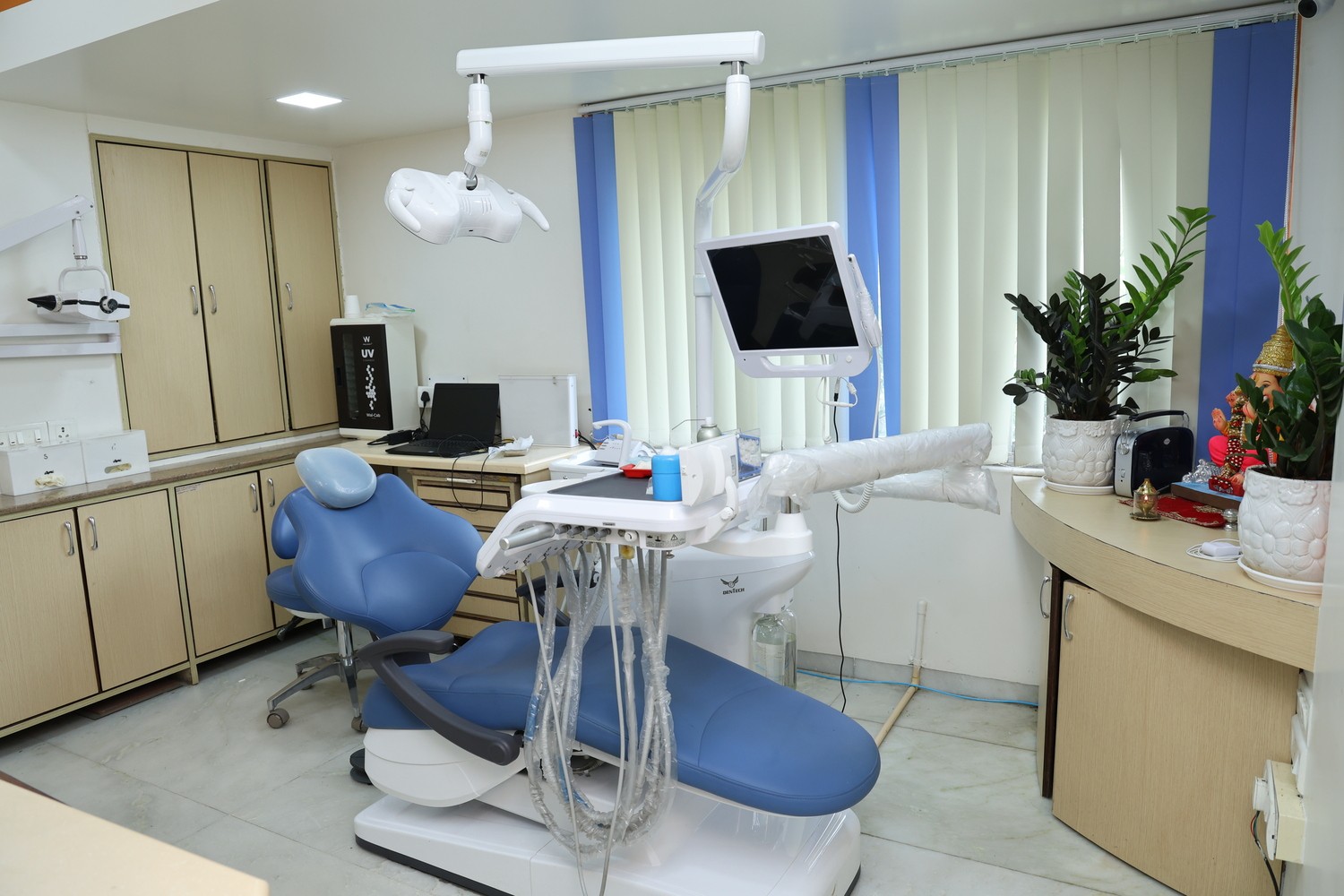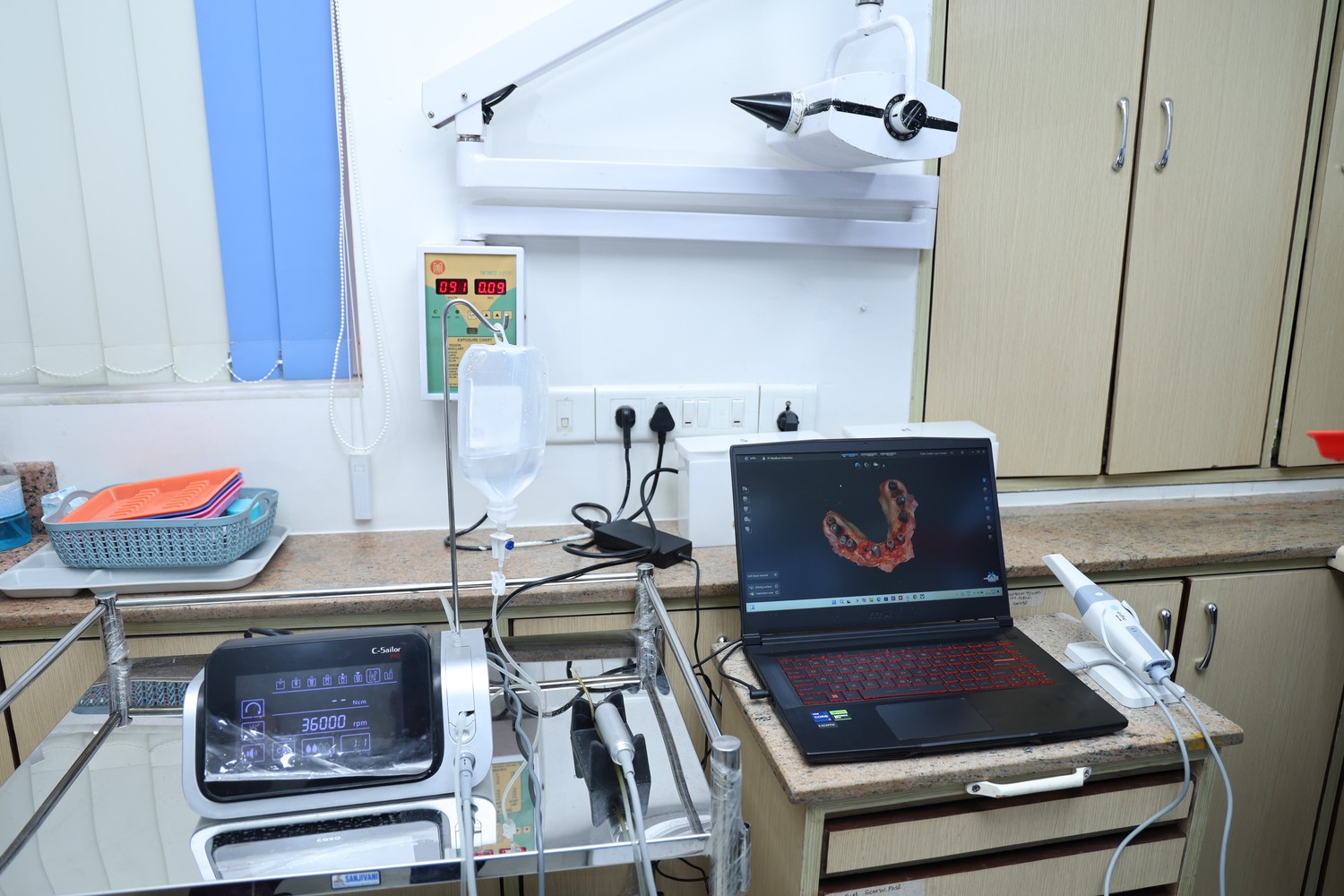Oral and Maxillofacial Surgery
- Home |
- Oral and Maxillofacial Surgery
Oral Surgery
- TMJ Disorders
- Maxillofacial Trauma
- Maxillofacial Reconstruction
- Jaw Tumor and Cyst
- Trigeminal Neuralgia
- Mucormycosis Surgeries
- Maxillofacial Prosthesis

Oral and Maxillofacial Surgery
it encompasses a wide range of surgical procedures involving the mouth, jaw, and face. This specialty addresses complex conditions such as facial trauma, cleft lip and palate, TMJ disorders, and head and neck cancers. Surgeons perform extractions, reconstructive surgeries, and corrective jaw surgeries, enhancing both function and appearance while improving patients’ quality of life.
TMJ Disorders
Temporomandibular joint (TMJ) disorders affect the jaw joint and surrounding muscles, causing pain and restricted movement. Treatments may include physical therapy, medications, bite guards, or surgery to treat symptoms, improve function, and restore the harmony of jaw movements.
Maxillofacial Trauma
Maxillofacial trauma refers to injuries to the face and jaw due to accidents, violence, or sports-related incidents. Treatment involves surgical intervention to repair fractures, lacerations, and other injuries, aiming to restore both function and appearance while minimizing long-term complications.
Maxillofacial Reconstruction
Maxillofacial reconstruction encompasses advanced surgical techniques to repair and reconstruct facial structures affected by trauma, congenital anomalies, or disease. Procedures may include bone grafting, soft tissue reconstruction, and dental restorations, aiming to improve aesthetics, function, and overall quality of life.
Jaw Tumor and Cyst
Jaw tumors and cysts are abnormal growths in the jawbone or surrounding tissues. Treatment typically involves surgical removal of the tumor or cyst, followed by reconstruction if necessary. Early detection and intervention are crucial to prevent complications and ensure successful outcomes.
Trigeminal Neuralgia
Trigeminal neuralgia is a chronic pain condition affecting the trigeminal nerve, causing severe facial pain. Treatment options include medications, nerve blocks, and surgical procedures to relieve pain and improve quality of life for affected individuals.
Mucormycosis Surgeries
Mucormycosis is a serious fungal infection that can affect the facial and maxillofacial regions. Surgical intervention is required to remove infected tissue, combined with antifungal medications to control the infection. Early diagnosis and aggressive treatment are essential to improve prognosis.
Maxillofacial Prosthesis
Maxillofacial prostheses are custom-made devices used to restore facial structures lost due to trauma, surgery, or congenital conditions. These prostheses, such as artificial eyes, ears, or facial implants, enhance the patient’s appearance, functionality, and confidence, contributing to a better quality of life.

20 +
years experience
FAQs
What are basal implants and how do they differ from traditional implants?
Basal implants are a type of dental implant that utilizes the dense cortical bone in the basal region of the jaw for stability. Unlike traditional implants, basal implants are single-piece implants that do not require bone grafts or sinus lifts, making them suitable for patients with insufficient bone volume or density. They also allow for immediate loading, meaning permanent teeth can be fixed in less than a week after the implant surgery.
Are basal implants suitable for everyone?
Basal implants are generally suitable for patients with moderate to severe bone atrophy, including those who are diabetic, hypertensive, or smokers. However, they may not be suitable for patients with certain medical conditions, such as recent myocardial infarction or stroke, or those taking medications that inhibit blood clotting. It's best to consult with a dental professional to determine if basal implants are the right option for you.
What is maxillofacial surgery and what conditions does it treat?
Maxillofacial surgery is a specialized type of surgery that focuses on the face, jaw, neck, and mouth. It treats a variety of conditions, including jaw pain, limited jaw function, tooth impaction, oral diseases, abnormal bites, temporomandibular joint (TMJ) disorders, facial injuries, cleft lips and palates, and tumors or cysts in the head and neck area
What is the recovery process like after maxillofacial surgery?
Recovery after maxillofacial surgery varies depending on the specific procedure. Generally, you may need to follow a liquid or pureed diet for about 4 to 6 weeks, and you might experience some swelling and discomfort. Your surgeon will provide specific post-operative care instructions, and it's important to follow them closely to ensure proper healing
How often should I get a dental checkup?
It's recommended to visit your dentist every six months for a routine checkup and cleaning. However, based on your oral health, your dentist might suggest more frequent visits.
What are the best ways to practice good oral hygiene at home?
Brush your teeth twice daily with fluoride toothpaste, floss daily, use an antiseptic mouthwash, eat a balanced diet, and avoid tobacco.
How can I improve the whiteness of my teeth?
You can improve teeth whiteness by practicing good oral hygiene, avoiding staining foods and beverages, and considering professional whitening treatments or over-the-counter whitening products recommended by your dentist.
Why should I have dental X-rays taken?
Dental X-rays help identify hidden dental issues such as cavities, impacted teeth, bone loss, and infections that are not visible during a regular exam.
Why does my breath smell bad and how can I fix it?
Bad breath, or halitosis, can result from poor oral hygiene, certain foods, dry mouth, smoking, or medical conditions. Improve your oral hygiene, stay hydrated, and visit your dentist to address the underlying cause.
Why is dental work so expensive?
The cost reflects high-quality materials, advanced technology, skilled labor, and overhead costs of running a dental practice. Many dentists offer payment plans or financing options.




